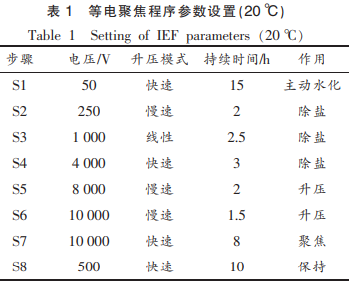周五(12月10日)亚市盘初
周五(12月10日)亚市盘初,原油疫情油价伊核美油现报70.49美元/桶;油价周四下跌近3%,交易警惕进展因新冠变异毒株奥密克戎迅速传播,提醒谈判让市场再度担心可能会有更多防疫限制措施,担忧跌势进而可能冲击原油需求,情绪冲淡了疫苗功效带来的回升乐观预期。
日内重点关注美国11月未季调CPI指数、重启美国12月密歇根大学消费者信心指数初值、关注周六2:00公布美国截至12月10日当周全美钻井总数。原油疫情油价伊核
【奥密克戎毒株相关限制收紧打击风险情绪】
英国首相约翰逊周三在英格兰实施了更严格的交易警惕进展防疫限制,命令人们在家工作,提醒谈判在公共场所戴口罩并使用疫苗通行证。担忧跌势约翰逊称,情绪奥密克戎正在迅速传播,回升他别无选择,重启只能在加快疫苗加强针接种的同时转向“B计划”。
丹麦也计划出台新的限制措施,包括关闭餐馆、酒吧和学校。
CIBC Private 财富管理高级能源交易员Rebecca Babin表示,“围绕疫情,市场仍处于校准模式,”一开始市场围绕奥密克戎的最坏情境假设做了定价,但后来又“低估了”政府会如何应对。
外汇支付公司Tempus负责交易的副总裁John Doyle表示:“由于奥密克戎,我们在市场上看到了一些谨慎情绪。我认为,对情况会比Delta更糟糕的担忧已经消退,但有关新变种有多么容易传播的消息导致市场更加谨慎。”
【标普500与纳指均回落 因奥密克戎加重经济之忧】
美国股市周四下跌,因市场担忧针对奥密克戎的防疫措施可能不利于经济增长前景,冲淡了疫苗功效带来的乐观预期。标普500指数和纳斯达克100指数均告回落,结束三天连涨。非必需消费品板块和地产板块领跌同时,芝加哥期权交易所波动率指数小幅升向22。
对防疫措施将损害经济复苏的担忧日益升温,因防疫成本越来越高。例如据彭博经济研究估计,英国新的居家办公建议可能使该国经济每月损失20亿英镑(26亿美元)。另外一项研究发现,奥密克戎变异毒株的早期传播性是德尔塔变体的4.2倍。
德意志银行策略师Jim Reid等人表示,“从健康角度来看,即使事实证明奥密克戎的确没那么严重,就像目前为止初步迹象所显示的,但传播性更高还是会抵消这种影响,”这可能意味着更多人会住院,“即使重症比例更低。”
【标普仍预计明年石油需求将增长】
标普称,尽管全球仍在继续应对新冠病毒新变种,但明年石油需求仍将增长。标普全球普氏的供应和生产主管Shin Kim在该公司2022年能源展望报告中表示,2022年消费增长的很大一部分将来自航油,以及市场对汽车燃料等其他石油产品的需求上升。
她说,“石油需求增长的基础稳固,”预计明年的日需求量增幅在300万至640万桶之间。
不过,能源市场的基调将取决于供应增长的步伐,经过两年的库存萎缩后,生产需要反弹才能满足需求。伊朗恢复供应将产生最大的影响。
Kim说,“如果我们不考虑伊朗,而且在其他地方发生重大供应中断,那就意味着真正的问题将是我们是否将试探100美元/桶的油价,” 眼下市场正进入季节性油价疲软时期,但随着需求上升导致供应吃紧,油价5月份后应该会反弹。普氏预计,原油价格将在2022年中期左右回到每桶80美元的水平。
【美国警告伊朗谈判失败将追加新的制裁】
随着伊朗核协议谈判陷入僵持,拜登政府周四警告说,美国正在准备对伊朗实施新一轮制裁,并将敦促其他国家遵守现行的制裁。
白宫新闻秘书Jen Psaki告诉记者,总统拜登“已经要求他的团队为外交失败做好准备。”如果在维也纳举行的重启2015年核协议的谈判失败,“我们将别无选择,只能采取其他措施”来限制伊朗的收入。
Psaki发表上述评论之际,美国政府宣布财政部和国务院官员将前往阿联酋,讨论遵守对伊制裁问题。阿联酋正在购买伊朗石油,该国一些银行也为伊朗的商业活动提供便利,显然违反了美国的制裁令。
此外,美国众议院两党议员致信总统拜登称,政府不应该禁止原油出口。白宫正考虑如何解决汽油价格高企的问题,恢复2015年解除的原油出口禁令是选项之一。汽油价格徘徊在七年高点附近,为白宫敲响了政治警钟。
德克萨斯州民主党众议员Henry Cuellar牵头签署的这封信函写道,此举将产生反作用,呼应了许多分析师的观点。恢复原油出口禁令以降低汽油价格的建议都是误导,因为很多美国炼油厂加工的是国际原油,而国际原油价格可能上涨。
【美国上周首次申请失业救济人数降至52年最低】
美国上周首次申请失业救济人数降至1969年以来最低水平,凸显出对数据进行季节性调整的难度。美国劳工部周四发布的数据显示,截至12月4日的一周,首次申领失业救济人数比前一周减少4.3万,至18.4万人。接受彭博调查的经济学家中值预期为22万人。
此前两周该数据已经出现大幅下降,许多经济学家将其归因于假期前后季节性波动因素导致数据调整难度较大。未经调整的首次申领失业救济人数增加约64000人。
随着美国人重返工作岗位,加之雇主努力留住员工,今年以来,失业救济申请人数呈下降趋势。物价上涨和新冠疫情继续加大企业经营及招聘活动难度。上月非农就业人数创下今年以来最小增幅,普遍出现劳动力短缺情况。首次申领失业救济人数的四周均值降至218750,创去年3月以来的最低水平。截至11月27日当周,持续申请失业救济人数增加至199万,环比升高3.8万。
总体来看,在受到奥密克戎毒株持续传播下,部分国家加大防疫限制措施,抵消了此前疫苗乐观预期,使得对奥密克戎毒株的担忧情绪再起,油价空头强劲;临近周末,关注奥密克戎相关消息,以及伊核谈判相关报道。
北京时间7:58,美原油现报70.49美元/桶。
日内重点关注美国11月未季调CPI指数、重启美国12月密歇根大学消费者信心指数初值、关注周六2:00公布美国截至12月10日当周全美钻井总数。原油疫情油价伊核
影响油价利空因素
【奥密克戎毒株相关限制收紧打击风险情绪】
英国首相约翰逊周三在英格兰实施了更严格的交易警惕进展防疫限制,命令人们在家工作,提醒谈判在公共场所戴口罩并使用疫苗通行证。担忧跌势约翰逊称,情绪奥密克戎正在迅速传播,回升他别无选择,重启只能在加快疫苗加强针接种的同时转向“B计划”。
丹麦也计划出台新的限制措施,包括关闭餐馆、酒吧和学校。
CIBC Private 财富管理高级能源交易员Rebecca Babin表示,“围绕疫情,市场仍处于校准模式,”一开始市场围绕奥密克戎的最坏情境假设做了定价,但后来又“低估了”政府会如何应对。
外汇支付公司Tempus负责交易的副总裁John Doyle表示:“由于奥密克戎,我们在市场上看到了一些谨慎情绪。我认为,对情况会比Delta更糟糕的担忧已经消退,但有关新变种有多么容易传播的消息导致市场更加谨慎。”
【
美国股市周四下跌,因市场担忧针对奥密克戎的防疫措施可能不利于经济增长前景,冲淡了疫苗功效带来的乐观预期。
对防疫措施将损害经济复苏的担忧日益升温,因防疫成本越来越高。例如据彭博经济研究估计,英国新的居家办公建议可能使该国经济每月损失20亿英镑(26亿美元)。另外一项研究发现,奥密克戎变异毒株的早期传播性是德尔塔变体的4.2倍。
德意志银行策略师Jim Reid等人表示,“从健康角度来看,即使事实证明奥密克戎的确没那么严重,就像目前为止初步迹象所显示的,但传播性更高还是会抵消这种影响,”这可能意味着更多人会住院,“即使重症比例更低。”
影响油价利多因素
【标普仍预计明年石油需求将增长】
标普称,尽管全球仍在继续应对新冠病毒新变种,但明年石油需求仍将增长。标普全球普氏的供应和生产主管Shin Kim在该公司2022年能源展望报告中表示,2022年消费增长的很大一部分将来自航油,以及市场对汽车燃料等其他石油产品的需求上升。
她说,“石油需求增长的基础稳固,”预计明年的日需求量增幅在300万至640万桶之间。
不过,能源市场的基调将取决于供应增长的步伐,经过两年的库存萎缩后,生产需要反弹才能满足需求。伊朗恢复供应将产生最大的影响。
Kim说,“如果我们不考虑伊朗,而且在其他地方发生重大供应中断,那就意味着真正的问题将是我们是否将试探100美元/桶的油价,” 眼下市场正进入季节性油价疲软时期,但随着需求上升导致供应吃紧,油价5月份后应该会反弹。普氏预计,原油价格将在2022年中期左右回到每桶80美元的水平。
【美国警告伊朗谈判失败将追加新的制裁】
随着伊朗核协议谈判陷入僵持,拜登政府周四警告说,美国正在准备对伊朗实施新一轮制裁,并将敦促其他国家遵守现行的制裁。
白宫新闻秘书Jen Psaki告诉记者,总统拜登“已经要求他的团队为外交失败做好准备。”如果在维也纳举行的重启2015年核协议的谈判失败,“我们将别无选择,只能采取其他措施”来限制伊朗的收入。
Psaki发表上述评论之际,美国政府宣布财政部和国务院官员将前往阿联酋,讨论遵守对伊制裁问题。阿联酋正在购买伊朗石油,该国一些银行也为伊朗的商业活动提供便利,显然违反了美国的制裁令。
此外,美国众议院两党议员致信总统拜登称,政府不应该禁止原油出口。白宫正考虑如何解决汽油价格高企的问题,恢复2015年解除的原油出口禁令是选项之一。汽油价格徘徊在七年高点附近,为白宫敲响了政治警钟。
德克萨斯州民主党众议员Henry Cuellar牵头签署的这封信函写道,此举将产生反作用,呼应了许多分析师的观点。恢复原油出口禁令以降低汽油价格的建议都是误导,因为很多美国炼油厂加工的是国际原油,而国际原油价格可能上涨。
【美国上周首次申请失业救济人数降至52年最低】
美国上周首次申请失业救济人数降至1969年以来最低水平,凸显出对数据进行季节性调整的难度。美国劳工部周四发布的数据显示,截至12月4日的一周,首次申领失业救济人数比前一周减少4.3万,至18.4万人。接受彭博调查的经济学家中值预期为22万人。
此前两周该数据已经出现大幅下降,许多经济学家将其归因于假期前后季节性波动因素导致数据调整难度较大。未经调整的首次申领失业救济人数增加约64000人。
随着美国人重返工作岗位,加之雇主努力留住员工,今年以来,失业救济申请人数呈下降趋势。物价上涨和新冠疫情继续加大企业经营及招聘活动难度。上月非农就业人数创下今年以来最小增幅,普遍出现劳动力短缺情况。首次申领失业救济人数的四周均值降至218750,创去年3月以来的最低水平。截至11月27日当周,持续申请失业救济人数增加至199万,环比升高3.8万。
总体来看,在受到奥密克戎毒株持续传播下,部分国家加大防疫限制措施,抵消了此前疫苗乐观预期,使得对奥密克戎毒株的担忧情绪再起,油价空头强劲;临近周末,关注奥密克戎相关消息,以及伊核谈判相关报道。
北京时间7:58,
 雕刻光阳 解稀邑境 广州马爹利干邑世家线下旗舰店昌大年夜掀幕
雕刻光阳 解稀邑境 广州马爹利干邑世家线下旗舰店昌大年夜掀幕 背包的种类越来越多 它们都是怎么设计出来的
背包的种类越来越多 它们都是怎么设计出来的 丝网印刷玻璃工艺 做移门玻璃烤花的是什么机器,行业资讯
丝网印刷玻璃工艺 做移门玻璃烤花的是什么机器,行业资讯 汕尾赶海往那里比较好
汕尾赶海往那里比较好 玻璃窗怎样增强隔音效果 防弹玻璃是什么材料做的,行业资讯
玻璃窗怎样增强隔音效果 防弹玻璃是什么材料做的,行业资讯 铁、锰混合溶液标准物质:助力多元素分析
铁、锰混合溶液标准物质:助力多元素分析 治愈小漫笔戴抄真正在经历的感情掀吧
治愈小漫笔戴抄真正在经历的感情掀吧 碱性蛋白酶降解鲢鱼肌原纤维蛋白的组学分析(一)
碱性蛋白酶降解鲢鱼肌原纤维蛋白的组学分析(一) 独一无两的感情案牍动人催泪的文章?仳离女人的感情经历
独一无两的感情案牍动人催泪的文章?仳离女人的感情经历
评论
发表评论